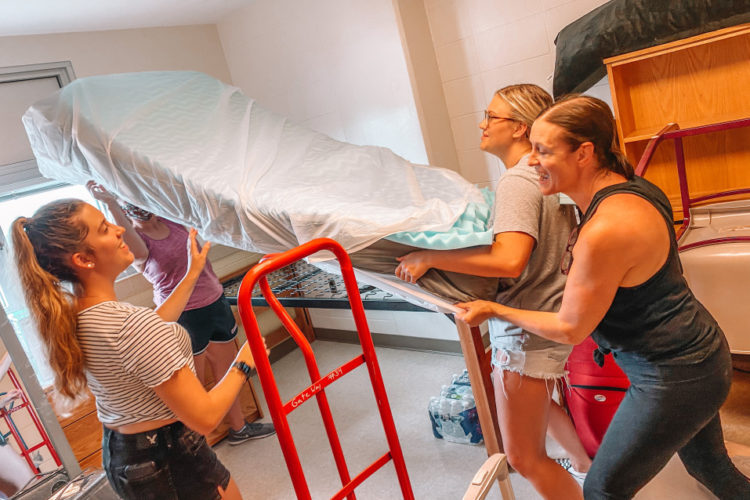As we head toward the fall and the back-to-school ads grow more insistent, my thoughts—along with those of many of my clients who are women in transition—turn to the changes that happen when your kids leave home. Though I still have one child at home, I know my time with him grows short, and I still remember the waves of emotion I felt when my older child left for college and then started her own life and career.
So, before we get into the financial implications of becoming an Empty Nester, let’s just acknowledge the emotional challenges. When your kids leave home, it’s a major life-marker. For years, you’ve poured yourself into everything that had to be done to keep them healthy, happy, and progressing toward the moment when they were ready to step out on their own. Now they have, and many of us are left feeling like a launch pad after blast-off: vacant, alone, and wondering about our purpose.
It’s important to remember that while sending your kids out into the world certainly constitutes the end of one thing, it also marks the beginning of something else. The time you used to spend on nurturing and raising your children can now be diverted to other worthwhile efforts: volunteering for important causes, starting or resuming a career, creating art, writing, reconnecting with a spouse or other important people, cooking, gardening, travel, and—most important—giving yourself more time for self-care: physical, mental, emotional, and spiritual.
But there are important financial considerations involved, as well, so let’s take a look at a couple of ideas for the repositioning that can provide important resources as you transition into the next phase of your adventure.
- Boost your retirement savings. I emphasize to all my clients who are preparing for retirement that the number-one thing they can do for their children is to make sure they don’t have to support their parents in retirement. Now that tuition, room and board, allowances, and other child-rearing expenses are behind you, make it a priority to shift a sizeable portion of those outlays into your IRA, 401K, or other retirement plan, contributing as close to your annual limit as possible.
- Downsize creatively. Stop paying for stuff you don’t use (think: super high-speed internet for your gamer; unlimited data for your kids’ mobile phones; insurance for childrens’ vehicles, etc.). You may not even need as much house anymore; is it time to hold a major garage sale and get rid of all that extra stuff so you can move into a place that won’t need to host sleepovers and backyard parties?
- Redirect your spending. Think about whether you’ll want to start allocating more funds to travel—to see your kids, for example—to dining out or going to cultural and entertainment events more frequently, to taking weekend trips, or to other things you’ll want to do for yourself that were more expensive or complicated when the kids were still at home.
- Think about your estate plan. Depending on your priorities and resources, you may want to re-evaluate what happens to your estate and how it might be allocated. If grandchildren will be part of the picture, you should consider what you’d want to do for them. If your life circumstances have changed because of death or divorce, it’s time to consider how that affects your planning.
As a fiduciary wealth manager and financial advisor, I specialize in helping women in transition develop smart financial strategies for the many phases of life. To learn more about how I work with women in transition to navigate life with “confidence, conviction, and clarity,” please click here.
Stay Diversified, Stay YOUR Course!

